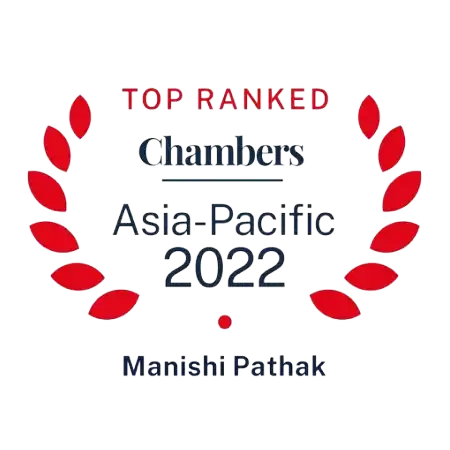1. PRESENCE OF REAL ESTATE DEVELOPERS IN GURGAON SUCH AS DLF, EMAAR INDIA, GODREJ PROPERTIES, VATIKA GROUP, UNITECH LIMITED, ETC. DOES NOT MAKE OPPOSITE PARTY DOMINANT IN RELEVANT MARKET: COMPETITION COMMISSION OF INDIA
In the information filed with Competition Commission of India (the “CCI”), it has been alleged that M3M India Private Limited (the “M3M”) started construction of additional 11th tower in its project namely ‘M3M Merlin’, without taking prior consent of its residents. It has been further stated that the developer obtained the occupation certificate (“OC”) in March 2017 and in the OC issued by Directorate of Town and Country Planning (“DTCP”) the number of towers was limited to ten (10). M3M submitted the deed of declaration in June 2017 wherein the number of towers was mentioned as ten (10). It has been alleged that M3M did not take consent of the residents before taking the approval of the DTCP for changing the layout and construction of a new tower and the 11th tower was not included in the original layout plan.
With respect to the alleged dominant position enjoyed by M3M, it has been stated by that in the financial year 2021-22, gross sales of M3M and its subsidiaries was INR 105,000,000,000 (One Hundred Five Billion). As per the informant, M3M claims to be a leading player in retail, residential and commercial projects, and has about 40 projects to his credit in Gurugram itself. Accordingly, it has been averred by the informant that M3M has abused its dominant position by its conduct of construction of an additional tower in the project M3M Merlin without obtaining prior approval of the residents.
The CCI in line with its previous decisions in similar matters, was of the view that the relevant geographic market in the instant case may be delineated as ‘Gurgaon’. After delineating the relevant market, the next step is to ascertain the dominance of M3M in the relevant market, as delineated supra. The CCI observed that M3M does not seem to enjoy
The CCI in line with its previous decisions in similar matters, was of the view that the relevant geographic market in the instant case may be delineated as ‘Gurgaon’. After delineating the relevant market, the next step is to ascertain the dominance of M3M in the relevant market, as delineated supra. The CCI observed that M3M does not seem to enjoy dominant position in the delineated relevant market due to presence of other developers in Gurugram such as DLF, Emaar India, Godrej Properties, Ansal API, Vatika Group, Unitech Limited, Sobha Limited, Adani Group, Eldeco Group, Ashiana Housing Limited, Raheja Developers Limited etc., which seem to impose significant competitive constraints on M3M. Accordingly, in the absence of dominance of M3M in the relevant market, the issue of examination of its alleged abusive conduct does not arise.
Hence, the CCI held that although the Informant has alleged contravention of Section 3(4)[1] of the Competition Act, 2002 (the “Act”) in the matter, but the said allegation has not been substantiated. The CCI was of the view that provisions of Section 3(4) of the Act had no application to the facts and circumstances of the present case, as it requires an agreement between two or more enterprises operating at different levels of the same supply chain. Therefore, the matter is directed to be closed forthwith in terms of the provisions of Section 26(2)[2] of the Act.
2. IIISLA, PROMOTED BY IRDAI FOR GRATING OF LICENSE FOR ‘SURVEYORS AND LOSS ASSESSOR’, LIES OUTSIDE CCI’S JURISDICTION: CCI
Information had been filed with CCI under Section 19(1)(a)[3] of the Act, 2002 against Insurance Regulatory and Development Authority of India (“IRDAI”) and Indian Institute of Insurance Surveyors and Loss Assessors (“IIISLA”) alleging contravention of the provisions of Sections 3 and 4 of the Act[4]. The informant has submitted that it had applied for renewal of the license on November 18, 2019 which has been allegedly withheld by IRDAI for the sole reason that the Informant is not a member of IIISLA. As per the Informant, IRDAI has mandated membership with the IIISLA as an eligibility criterion for grant of renewal by notification published in Official Gazette on March 22, 2013. The Informant has stated that it had taken membership of IISLA initially, but stopped paying subscription fee / annual membership fee since the financial year 2008-09, as in his opinion, within three (3) years of its establishment, IIISLA failed to make any noteworthy progress in attaining the objects of its establishment.
The CCI held that, IRDAI is a statutory body created under the IRDAI Act, 1999 and IIISLA is a body promoted by IRDAI in the discharge of its functions under Section 14(2)(k) of the IRDAI Act, 1999. Further, membership of IIISLA had been made mandatory by IRDAI for grant and renewal of licenses for Surveyors and Loss Assessors. Such functions, being regulatory in nature, are not per se amenable within the jurisdiction of the CCI as held by the Hon’ble Delhi High Court (the “DHC”) in its judgment dated July 02, 2023 in the case of Institute of Chartered Accountants of India v. Competition Commission of India & Ors.
3. THE COMPETITION ACT, 2002 APPLIES TO PUBLIC SECTOR UNDERTAKINGS (PSUs) SUCH AS COAL INDIA LTD. (CIL): Hon’ble Supreme Court of India
In the appeal before the Supreme Court of India (the “SC”), CIL contended that it was a statutory monopoly and that its subsidiary, Western Coalfields Limited, should be immune from the Act since they are governed by the Coal Mines (Nationalisation) Act, 1973.
The SC determined that CIL is an “enterprise” for purposes of Section 2(h) of the Competition Act because the term “enterprise” has been defined to expressly include within its ambit a “person” or a “Department of the Government” and only excludes from that definition, a government department carrying out sovereign functions of the Government. The SC ruled that running a mining operation cannot be considered a “sovereign function”, and that a “state monopoly” like CIL is nevertheless subject to the Act’s provisions. It further held that the existence of other forums, such as the Controller of Coal, where redress can be sought against CIL’s activities, cannot result in denial of access to a party complaining of a violation of the Act.
The SC, in an order dated June 15, 2023, held that the Act applies to CIL and that PSUs are not exempt from its requirements. The appeal before the SC arose from an order of the former Competition Appellate Tribunal (COMPAT) that affirmed the CCI conclusions and findings on various aspects of abuse of dominant position against CIL in violation of Section 4of the Act. The CCI in its order dated April 23, 2017 held that CIL had abused its dominant position by imposing unfair/discriminatory conditions in Fuel Supply Agreements (FSAs) with the power producers for supply of non-coking coal and had imposed a penalty of INR 5,910,000,000 (Five Billion Nine Hundred Ten Million) on CIL.
4. DELHI HIGH COURT SETS ASIDE CCI’S ORDER OF INVESTIGATION INTO THE ALLEGED ABUSE OF DOMINANCE BY INSTITUTE OF CHARTERED ACCOUNTANTS OF INDIA (ICAI)
In an order dated June 02, 2023, the DHC set aside the CCI’s order asking the Director General to examine the alleged abuse of dominance by ICAI under Section 4 of the Act. The CCI found ICAI to have misused its dominant position in the relevant market of ‘the market for arranging recognized CPE seminars / workshops / conferences’ in violation of Section 4 of the Act in its order dated February 02, 2014. The current disagreement is around the fact that only ICAI and its organs are in charge of organizing organized learning activities and that ICAI has not associated or authorized any other organization to do so. Through the current writ petition, the ICAI argued that because it is a non-profit organization, the CCI lacks jurisdiction over its operations.
The CCI, according to the ICAI, lacked the authority to examine its judgments, policies, or the way it carries out its duties because the CPE program was designed in the exercise of the authority provided to it under the Chartered Accountants Act, 1949. Whether ICAI would fall under the definition of an ‘enterprise’ was the first issue brought up for consideration before the DHC. The DHC ruled that the ICAI’s activities cannot be characterized as ‘sovereign’ in nature. It was decided that ICAI is not exempt from the expansive definition of the term ‘enterprise’ as specified under Clause (h) of Section 2 of the Act, even though it performs regulatory duties.
Secondly, the DHC was asked that whether ICAI was, at least on the surface, abusing its dominating position. The DHC agreed with the CCI’s conclusions except that there is no other body or institution engaged in the activity of providing professional training to obtain the classification of a chartered accountant or for the continuing education program. As a result, the DHC granted the writ petition to set aside the CCI’s order.
5. CCI DISMISSED ALLEGATIONS PERTAINING TO ABUSE OF DOMINANCE AGAINST LG ELECTRONICS
In accordance with Section 26(2)[1] of the Act, the CCI dismissed an information brought by Perfect Infraengineers Limited (“Informant”) against LG Electronics Limited (“LG”) in an order dated June 26, 2023. The Informant had filed a complaint with the CCI saying that LG had violated Sections 3 and 4 of the Act by abusing its dominant position in the Indian market for the production and sale of Variable Refrigerant Flow (VRF) Heating, Ventilation, and Air Conditioning (HVAC) air conditioners.
The Informant had proposed to the Delhi Metro Rail Corporation (“DMRC”) to deliver its Hybrid Thermal Solar (“HTS”) for integration with LG’s VRF air conditioners installed on DMRC property. LG was accused of violating Section 4 of the Act by refusing to install Informant’s HTS panels on its air conditioners. While assessing LG’s dominance in the relevant market, the CCI stated that the presence of a wide number of participants in the market for the manufacture and sale of VRF HVAC air conditioners makes the market contestable and gives customers with various options, acting as a competitive constraint on LG.
Furthermore, the CCI stated that, despite the Informant’s allegation of a violation of Section 3 of the Act, it had failed to give any information as to how LG’s conduct falls within the purview of Section 3 of the Act, and thus dismissed the case.
6. CCI APPROVED THE PROPOSED ACQUISITION OF 4.04% SHAREHOLDING IN ACKO TECHNOLOGY & SERVICES PVT LTD.BY GENERAL ATLANTIC SINGAPORE ACK PTE. LTD.
The CCI approved the proposed acquisition of 4.04% of Acko Technology & Services Private Limited (“Acko Tech”) by General Atlantic Singapore ACK PTE Limited (“General Atlantic”), which already held 15.54% equity in Acko Tech as well as voting rights, information rights, and representation on Acko Tech’s board. General Atlantic is a Singapore-based investment holding firm. Acko Tech is an insurance-tech company in India that specializes in general and life insurance.
7. CCI APPROVED THE ACQUISITION OF SHAREHOLDING OF AMBIT PRIVATE LIMITED BY DAIWA INTERNATIONAL HOLDING INC.
The CCI approved Daiwa International Holdings Inc.’s (“DAIWA”) proposed acquisition of approximately 16% of the equity shares in Ambit Private Limited (“APL”) through a mix of primary share subscriptions and secondary share acquisitions from existing owners. Following that, APL will acquire 100% of DAIWA shares.
DAIWA is a Japanese investment/financial holding company that operates as an intermediary management holding company. DAIWA Group has a presence in India through its subsidiaries that provide institutional equities services such as stock broking and value-added services such as corporate access and research report preparation in India, as well as investment banking services in the form of M&A advisory services. APL is registered with SEBI as a merchant banker and provides a range of financial services in India.
8. GRANTS EXEMPTION TO REGIONAL RURAL BANKS FROM COMPLYING WITH PROVISIONS OF COMBINATIONS UNDER COMPETITION ACT
In exercise of the powers conferred by Clause (a) of Section 54[1] of the Act, the Central Government, in public interest, exempted the Regional Rural Bank notified under sub-section (1) of Section 23A of the Regional Rural Banks Act, 1976 (21 of 1976), from the application of provisions of Sections 5[2] and 6[3] of the Act for a period of five (5) years from the date of publication of this notification in the Official Gazette.









